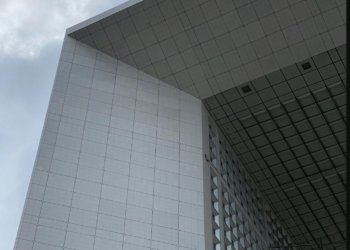by PublicABCP
Translated and reviewed by Matheus Lucas Hebling
The book A Ilusão Neoliberal da Indústria (The Neoliberal Illusion of Industry), by Haroldo da Silva (PUC-SP), analyzes the causes and implications of deindustrialization in Brazil, combining sociological and economic perspectives. Covering the period from 1996 to 2021, the work examines the factors behind the decline of the national industrial sector.
In addition to addressing structural issues such as public policies and legislative action on behalf of industry, the author discusses the impact of neoliberal proposals adopted over the past decades and their limitations in promoting sustainable industrial development.
The analysis focuses on the political engagement of the Brazilian industrial sector in the National Congress, presented as a democratic and effective strategy for defending collective interests such as reducing the “Custo Brasil” (Brazil Cost) and improving competitiveness. However, the author critiques the approach of the National Confederation of Industry (CNI) and the prevailing influence of neoliberalism, which he considers insufficient to stimulate industry or ensure sustainable economic development.
The book reflects on the need for a more balanced relationship between market policies and strategic state intervention in areas such as research and innovation.
Among the factors contributing to deindustrialization, the book highlights high taxation, monetary policies with elevated interest rates, and the absence of a consistent industrial policy. According to the author, these elements limited competitiveness and left Brazilian industry more vulnerable to economic crises. The Covid-19 pandemic further exposed these weaknesses, emphasizing the importance of public policies designed to reduce strategic vulnerabilities in critical moments.
To deepen the sociological dimension, the author draws on Pierre Bourdieu’s concepts—such as habitus, fields, and symbolic capital—to explore the social and political dynamics shaping the relationship between industry and the state. The work argues that the industrial sector must engage more actively in politics, not only to defend its own interests but also to influence legislative debates in a pragmatic way.
The book recommends strengthening evidence-based policymaking, diversifying industrial strategies, and striking a balance between state intervention and market forces to foster more sustainable and inclusive development.
The study concludes that addressing Brazil’s deindustrialization requires greater political pragmatism and a less ideological stance from the industrial sector. To regain competitiveness and promote sustainable development, the sector must recover legitimacy and adopt a more independent role in political relations. The author emphasizes the transformative potential of industry as a driver of collective benefits—beyond its corporate interests—provided it can move past outdated assumptions and adapt to the demands of globalization.
Author Profile
Haroldo da Silva is a visiting professor at Universidade Presbiteriana Mackenzie. He holds a PhD from PUC-SP and a Master’s degree from UFPR. Named Economist of the Year 2024 by CIESP, he is a consultant for Abit, ABIMO, and Sinditêxtil-SP. He also serves as a board member of FIESP, CNI, and CORECON-SP, where he coordinates the Economy in Debate Committee.
Publication Information
Title: A Ilusão Neoliberal da Indústria (The Neoliberal Illusion of Industry)
Author: Haroldo da Silva
Publisher: Editora Diálogo Freiriano
Year: 2024
ISBN: 9786585815031
Available at: Livro.vc








